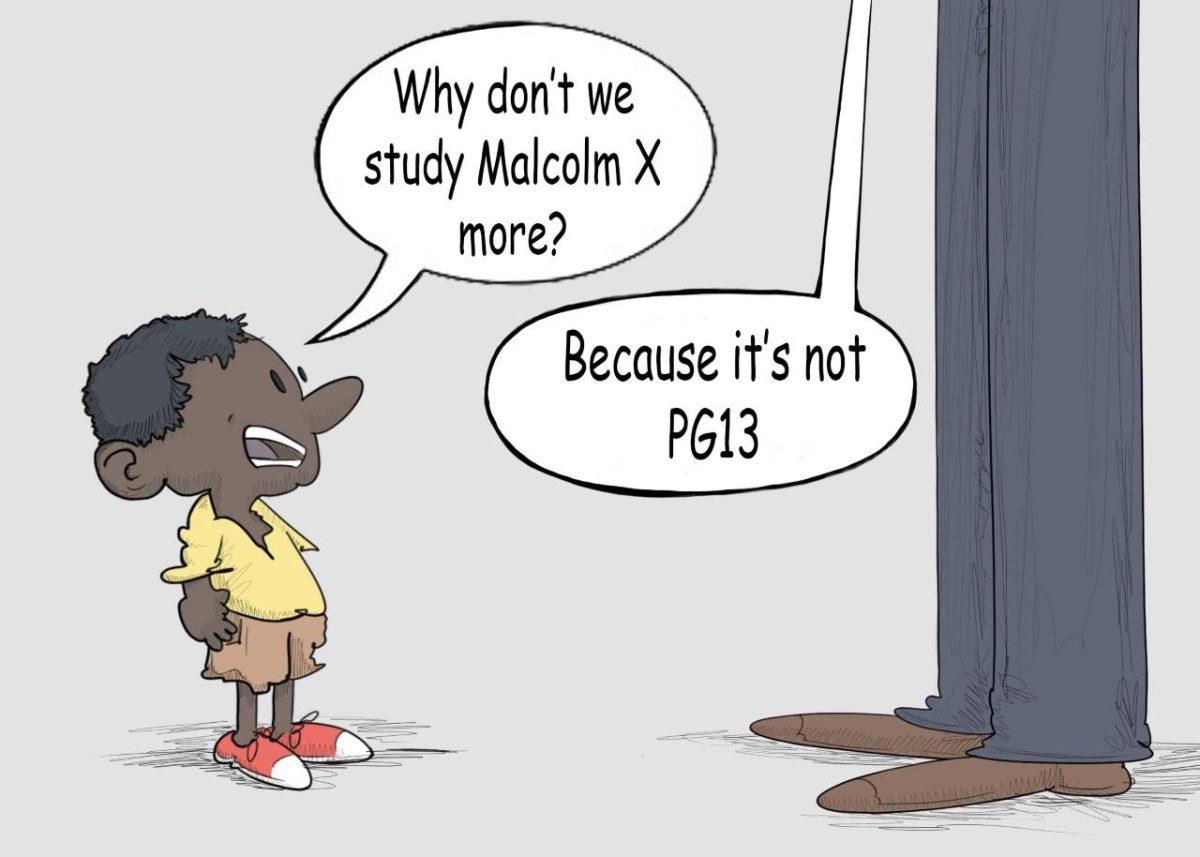Rosa Parks, Martin Luther King Jr. and other peaceful protesters have become synonymous with the civil rights movement. The image of Martin Luther King Jr. and his echoing calls of “I have a dream” emanating from the Lincoln monument make for a gorgeous and well-kept depiction of what was really an ugly fight for freedom.
History has a way of smoothing out the complexities of real, bloody events that led to the freedoms we take for granted today. The shorthand version of the civil rights movement that we see in our history books today leaves out a lot.
The stories we tell and what is taught about the civil rights movement are far from the historical reality. Important figures and events have been glossed over in favor of more flattering stories that focused on the cooperation and good that came from the movement instead of the horrors faced during the movement. Key figures like Ella Baker, Robert F. Williams, Pauli Murray and countless others have been left out of the public idea of the civil rights movement due to the nature of their work.
The national narrative has centered on the successful nonviolent marches that took place throughout the south instead of focusing on difficult stories of violent resistance in the face of violent oppression. King’s march on Selma was important, but so were the Freedom Riders who took on the public busing system’s unconstitutional segregation throughout the South.
Rosa Park’s brave decision to stay in the front of the bus made national news and is considered a cornerstone of civil rights history, but Robert F. Williams’ “Radio Free Dixie,” run from communist Cuba, was a pro-civil rights radio station heard across the country around the same time. “Radio Free Dixie” had an enormous impact, yet only Parks is remembered today.
King’s call for nonviolent protests overshadowed Robert Williams’ calls for violent self-defense. Every national memory of the civil rights era has a counterpart that is forgotten. The work done outside of the public eye was oftentimes more important than the marches in front of the cameras.
Our country’s collective conscience has remained focused on the clean-cut aspects of a very messy era. Organizations and people who were going against the desired culture of resistance have been erased in favor of a history that is less difficult. The ugly parts of white supremacy and anyone who fought against it the “wrong” way have seemingly been forgotten.
The story surrounding the civil rights movement that persists to this day has dropped almost all mention of the national effort that fought against the movement. A large number of Americans did not want anything to do with civil rights. It is easily forgotten that public schools and universities across the nation, including the University, were full of people protesting the integration of these institutions.
Baton Rouge was rife with political unrest deep into the 1970s and ’80s because of the slow-moving pace of integration. The civil rights movement here was certainly far from clean-cut and peaceful, yet very little of it is ever taught. Resistance against the movement is still raging on, with white supremacists groups throughout the state and country promoting hate.
Radical organizers pushed and defined the civil rights movement as we know it today. These were advocates who worked on large-scale change rather than the reforms that litter our textbooks. Many were overlooked because of their radical ideals, but others were simply ignored because of who they were, especially members of the LGBTQ+ community.
Pauli Murray played an enormous role in the fight for civil rights, but she was overlooked and ignored because of her sexuality, both then and now. Countless heroes have all been erased from history textbooks because their sexual identities were the focus of outside attention, rather than the work they did.
We remember the stories of the civil rights era. We remember Rosa Parks and Martin Luther King and how so many people marched in Washington. However, we must do more.
Give respect to those we don’t remember. Give respect to the heroes who fought for equality in a country based on the idea that all men are created equal only to have that same country erase their accomplishments. The history of the United States, Louisiana and the University are far from pretty, and it is important we pay respect to the parts of history we would rather forget. The civil rights movement helped define the world as we know it today and it is important we remember those who made it happen.
Cory Koch is a 20-year-old political science senior from Alexandria, Louisiana.





